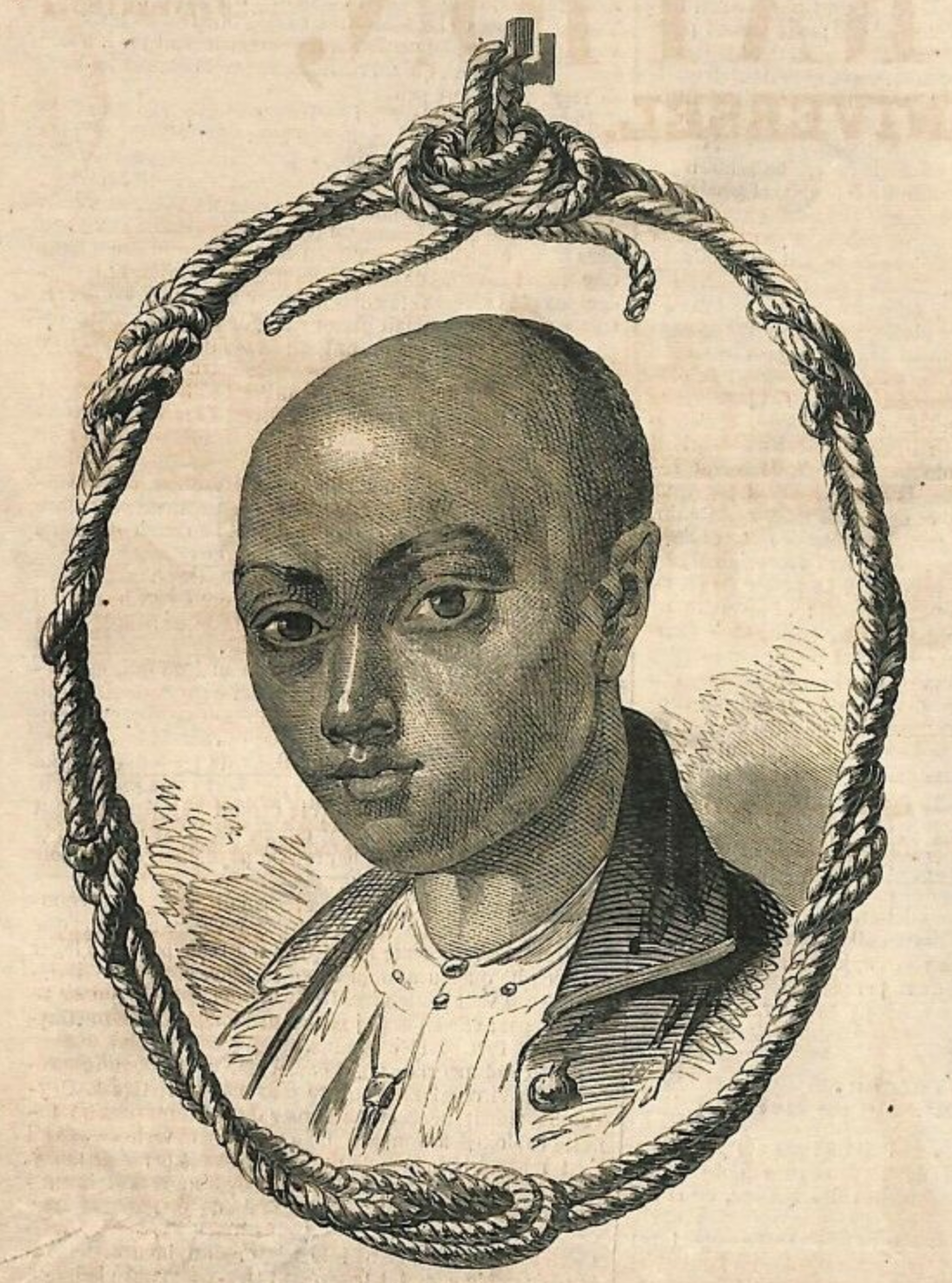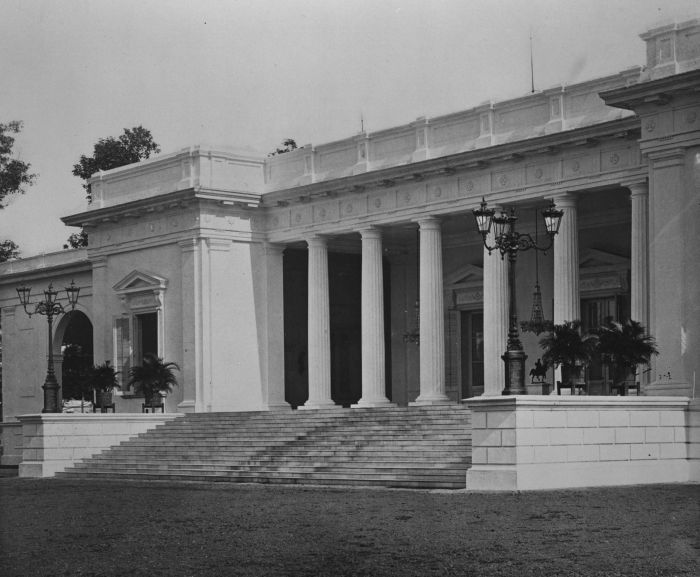|
Khouw Kim An
Khouw Kim An, 5th Majoor der Chinezen (; 1875 – February 13, 1945) was a high-ranking Chinese Indonesian bureaucrat, public figure and landlord who served as the fifth and last ''Majoor der Chinezen'' ("Major of the Chinese") of Batavia, Dutch East Indies (now Jakarta). The Chinese Mayoralty was the highest-ranking, Chinese government position in the East Indies with considerable political and judicial jurisdiction over the colony's Chinese subjects. The Batavian Mayoralty was one of the oldest public institutions in the Dutch colonial empire, perhaps second only in antiquity to the viceregal post of Governor-General of the Dutch East Indies. Family and background Khouw Kim An Sia was born in Batavia in 1875 to the ninth concubine of his father, Khouw Tjeng Tjoan, ''Luitenant-titulair der Chinezen'' (died in 1880). Khouw's father and uncles, Khouw Tjeng Kee and Khouw Tjeng Po, were the sons of the late eighteenth-century magnate, Khouw Tian Sek (died in 1843), patriar ... [...More Info...] [...Related Items...] OR: [Wikipedia] [Google] [Baidu] |
Leiden University
Leiden University (abbreviated as ''LEI''; nl, Universiteit Leiden) is a Public university, public research university in Leiden, Netherlands. The university was founded as a Protestant university in 1575 by William the Silent, William, Prince of Orange, as a reward to the city of Leiden for its Siege of Leiden, defence against Spanish attacks during the Eighty Years' War. As the oldest institution of higher education in the Netherlands, it enjoys a reputation across Europe and the world. Known for its historic foundations and emphasis on the social sciences, the university came into particular prominence during the Dutch Golden Age, when scholars from around Europe were attracted to the Dutch Republic due to its climate of intellectual tolerance and Leiden's international reputation. During this time, Leiden became the home to individuals such as René Descartes, Rembrandt, Christiaan Huygens, Hugo Grotius, Baruch Spinoza and Baron d'Holbach. The university has seven academic f ... [...More Info...] [...Related Items...] OR: [Wikipedia] [Google] [Baidu] |
Oen Giok Khouw
Khouw Oen Giok Sia (1874 – 1927), later more popularly known as Oen Giok Khouw or O. G. Khouw, was a philanthropist and landowner in the Dutch East Indies (now Indonesia). He gained notoriety for acquiring Dutch citizenship, thus breaking down the race barriers of colonial society. Today, he is best remembered for his extravagant mausoleum in Petamburan, Jakarta. Family Born in 1874 in Batavia (now Jakarta), he was a scion of the Khouw family of Tamboen, part of the ''Cabang Atas'' or the Chinese gentry (''baba bangsawan'') of colonial Indonesia. His father, Khouw Tjeng Kee, ''Luitenant-titulair der Chinezen'' (died in 1883), was a prominent landlord and community leader. Khouw's father and uncles, Luitenant Khouw Tjeng Tjoan and Luitenant Khouw Tjeng Po, were the sons of the late eighteenth-century magnate, Luitenant Khouw Tian Sek (died in 1843). The Chinese lieutenancies of Khouw's father, uncles and grandfather were honorary appointments without any of the entailed ... [...More Info...] [...Related Items...] OR: [Wikipedia] [Google] [Baidu] |
Sia (title)
Sia () was a hereditary title of Chinese origin, used mostly in colonial Indonesia. It was borne by the descendants of Chinese officers, who were high-ranking, Chinese civil bureaucrats in the Dutch colonial government, bearing the ranks of ''Majoor, Kapitein'' or ''Luitenant der Chinezen'' (see: ''Kapitan Cina''). History As with other Chinese honorifics, the title 'Sia' came at the end of the title holder's name: for example, as in Oey Tamba ''Sia'' (1827 - 1856). The title was used not with its holder's surname, but with his given name, so ''Tamba Sia'' instead of ''Oey Sia''. In everyday speech, use of the title was often combined with other honorifics, such as ''Ako Sia'' ('elder brother Sia') or '' Baba Sia'' ('sir Sia'). Originally, the honorific was used in Imperial China to address certain senior mandarins, the relatives of a mandarin or descendants of the House of Koxinga, formerly the ruling dynasty of the Kingdom of Tungning. In colonial Indonesia, the honorific ... [...More Info...] [...Related Items...] OR: [Wikipedia] [Google] [Baidu] |
Cabang Atas
The Cabang Atas (''Van Ophuijsen Spelling System'': Tjabang Atas) — literally 'highest branch' in Indonesian — was the traditional Chinese establishment or gentry of colonial Indonesia. They were the families and descendants of the Chinese officers, high-ranking colonial civil bureaucrats with the ranks of ''Majoor'', ''Kapitein'' and ''Luitenant der Chinezen''. They were referred to as the baba bangsawan ��Chinese gentry’in Indonesian, and the ba-poco in Java Hokkien. As a privileged social class, they exerted a powerful influence on the political, economic and social life of pre-revolutionary Indonesia, in particular on its local Chinese community. Their institutional control of the Chinese officership declined with the colonial Ethical Policy of the early twentieth century, but their political, economic and social influence lasted until the Indonesian revolution (1945-1950). Origin of term The phrase 'Cabang Atas' was first used by the colonial Indonesian historia ... [...More Info...] [...Related Items...] OR: [Wikipedia] [Google] [Baidu] |
Khouw Family Of Tamboen
The Khouw family of Tamboen was an aristocratic landowning dynasty of bureaucrats and community leaders, part of the ''Cabang Atas'' or the Peranakan Chinese gentry of colonial Indonesia. Many members of the family held the rank of ''Majoor'', ''Kapitein'' and ''Luitenant der Chinezen'' in the colonial government, which gave them significant political and judicial jurisdiction over the colony's Chinese subjects. As among the colony's largest landlords, the family also played an important role in the urban, agricultural and economic development of the greater Jakarta area. The family traces its lineage back to the Chinese-born or ''Totok'' brothers Khouw Tjoen (died in 1831), Khouw Shio and Khouw Soen, who migrated around 1769 from their native Fujian in the Qing Empire to Tegal on Java's north coast, where they prospered in business. The brothers were the sons of Khouw Teng and grandsons of Khouw Kek Po, and hailed from the ranks of the landowning Chinese scholar-gentry. ... [...More Info...] [...Related Items...] OR: [Wikipedia] [Google] [Baidu] |
Khouw Tjeng Po
Khouw Tjeng Po, -titulair der Chinezen (born in 1838 — died in 1882) was a Chinese-Indonesian magnate and landlord in Batavia, capital of the Dutch East Indies (now Indonesia). Khouw was the youngest son of Khouw Tian Sek, ''Luitenant-titulair der Chinezen'' (died in 1843), a Batavia magnate and patriarch of the Khouw family of Tamboen. He was part of the ''Cabang Atas'' or the Chinese gentry (''baba bangsawan'') of colonial Indonesia. He had two elder brothers, Khouw Tjeng Tjoan and Khouw Tjeng Kee, and two sisters, Khouw Giok Nio and Khouw Kepeng Nio. Khouw, his father and brothers held the rank of ''Luitenant der Chinezen'', awarded to high-ranking Chinese officials of the civil bureaucracy in the Dutch East Indies. The title had been granted on an honorary basis without administrative responsibilities. Prior to his Chinese lieutenancy, he had the hereditary title of ''Sia'' as the son of a Chinese officer. From the mid-nineteenth century until the end of colonial ... [...More Info...] [...Related Items...] OR: [Wikipedia] [Google] [Baidu] |
Khouw Tjeng Kee
Khouw Tjeng Kee, Luitenant-titulair der Chinezen (born in 1832 — died in 1883) was a Chinese-Indonesian magnate and landlord in Batavia (Dutch East Indies), Batavia, capital of the Dutch East Indies (now Indonesia). Khouw was the second of three sons born to Khouw Tian Sek, Khouw Tian Sek, ''Luitenant-titulair der Chinezen'' (died in 1843), a Batavia magnate and patriarch of the Khouw family of Tamboen, part of the ''Cabang Atas'' or the Chinese gentry (''baba bangsawan'') of colonial Indonesia. He had two brothers, Khouw Tjeng Tjoan, Luitenant Khouw Tjeng Tjoan and Khouw Tjeng Po, Luitenant Khouw Tjeng Po, and two sisters, Khouw Giok Nio and Khouw Kepeng Nio. Khouw, his father and brothers held the rank of Kapitan Cina, ''Luitenant der Chinezen'', proper to high-ranking, Chinese officials of the civil bureaucracy in the Dutch East Indies. In their case, however, the title had been granted on an honorary basis without administrative responsibilities. Prior to his Chinese lieuten ... [...More Info...] [...Related Items...] OR: [Wikipedia] [Google] [Baidu] |
Njai
The ''njai'' (; Enhanced Indonesian Spelling System: ''nyai'') were women who were kept as housekeepers, companions, and concubines in the Dutch East Indies (modern-day Indonesia). In the Javanese language, the word ''nyai'' meant "sister", but the term later took a more specific meaning. Author Rob Nieuwenhuys described the position of the njai as always subservient, being the white man's housekeeper and companion, before she was his concubine. Terminology and description The term ''njai'', also found in the spellings ''nyai'', ''njaie'', ''nyaie'', ''nyahi'' or ''nyi'', comes from a Balinese word meaning sister. In Sundanese the term ''nyai'' refers to "miss" or young woman, while in Betawi dialect, ''nyai'' refers to "grandmother" or elderly lady. The ''Kamus Besar Bahasa Indonesia'' gives three definitions for ''njai'': as a term for referring to a married or unmarried woman, as a term for referring to a woman older than the speaker, and for the concubine of a non-Indonesi ... [...More Info...] [...Related Items...] OR: [Wikipedia] [Google] [Baidu] |
Governor-General Of The Dutch East Indies
The governor-general of the Dutch East Indies ( nl, gouverneur-generaal van Nederlands Indië) represented Dutch rule in the Dutch East Indies between 1610 and Dutch recognition of the independence of Indonesia in 1949. Occupied by Japanese forces between 1942 and 1945, followed by the Indonesian National Revolution until 1949. Indonesia proclaimed its independence on 17 August 1945. History The first governors-general were appointed by the Dutch East India Company (VOC). After the VOC was formally dissolved in 1800, the territorial possessions of the VOC were nationalised under the Dutch government as the Dutch East Indies, a colony of the Netherlands. Governors-general were now appointed by either the Dutch monarch or the Dutch government. During the Dutch East Indies era most governors-general were expatriate Dutchmen, while during the earlier VOC era most governors-general became settlers who stayed and died in the East Indies. Under the period of British control (1811 ... [...More Info...] [...Related Items...] OR: [Wikipedia] [Google] [Baidu] |
Jakarta
Jakarta (; , bew, Jakarte), officially the Special Capital Region of Jakarta ( id, Daerah Khusus Ibukota Jakarta) is the capital and largest city of Indonesia. Lying on the northwest coast of Java, the world's most populous island, Jakarta is the largest city in Southeast Asia and serves as the diplomatic capital of ASEAN. The city is the economic, cultural, and political centre of Indonesia. It possesses a province-level status and has a population of 10,609,681 as of mid 2021.Badan Pusat Statistik, Jakarta, 2022. Although Jakarta extends over only , and thus has the smallest area of any Indonesian province, its metropolitan area covers , which includes the satellite cities Bogor, Depok, Tangerang, South Tangerang, and Bekasi, and has an estimated population of 35 million , making it the largest urban area in Indonesia and the second-largest in the world (after Tokyo). Jakarta ranks first among the Indonesian provinces in human development index. Jakarta's busin ... [...More Info...] [...Related Items...] OR: [Wikipedia] [Google] [Baidu] |
Chinese Indonesian
Chinese Indonesians ( id, Orang Tionghoa Indonesia) and colloquially Chindo or just Tionghoa are Indonesians whose ancestors arrived from China at some stage in the last eight centuries. Chinese people and their Indonesian descendants have lived in the Indonesian archipelago since at least the 13th century. Many came initially as sojourners (temporary residents), intending to return home in their old age. Some, however, stayed in the region as economic migrants. Their population grew rapidly during the colonial period when workers were contracted from their home provinces in Southern China. Discrimination against Chinese Indonesians has occurred since the start of Dutch colonialism in the region, although government policies implemented since 1998 have attempted to redress this. Resentment of ethnic Chinese economic aptitude grew in the 1950s as Native Indonesian merchants felt they could not remain competitive. In some cases, government action propagated the stereotype that ... [...More Info...] [...Related Items...] OR: [Wikipedia] [Google] [Baidu] |







_en_Tek_Hwa_Seng_bij_Poeloe_Samboe_TMnr_10010680.jpg)